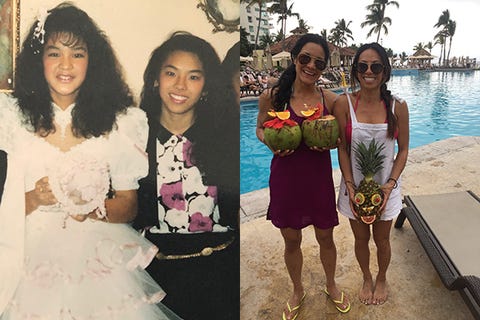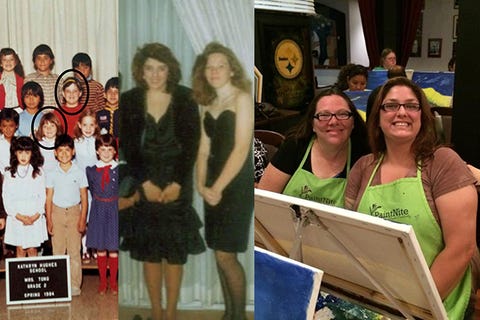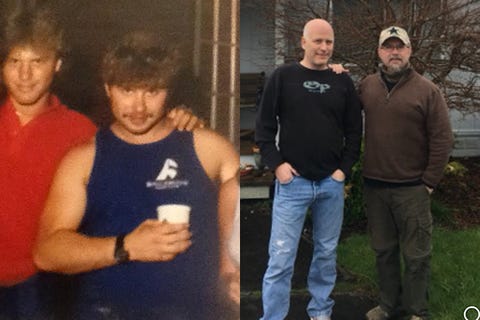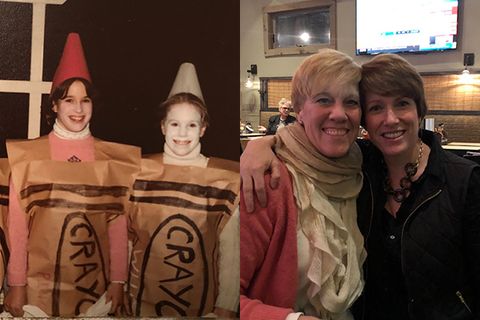Credit: Andrea D’aquino / flickr
The power of the human mind is wonderful and boggling—except when it turns on you, peppering your psyche with staccato queries about your relationship.
One minute, your partner’s grandeur is so intense, it’s cartoonish. How did you ever land such a splendid fish? The next minute, you’re spun into a vortex of doubt, placing them under intense analysis and scrutinizing every nuance of the relationship, including their questionably thick eyebrows.
This barrage of errant thoughts and questions commonly arises in otherwise healthy relationships. The obsessions include judgments around a mate’s imperfections as a person and partner, or about the rightness of the relationship itself:
- Why can’t he ever trim his ear hair?
- Does her nose have to whistle whenever she chews?
- I just saw a hot guy at Starbucks—am I in the wrong relationship?
- Are they even smart enough for me?
- Why aren’t we schmoopy like other couples?
- There are times I’d rather look at Instagram than have sex with him.
- Why don’t I miss her even though I’ve been at Coachella for three days?
This form of anxiety that comes with liking someone is common enough that I think it warrants its own name: “relationship obsessive-compulsive disorder (ROCD).” (Note: This is not an official diagnosis or clinical term.) The seemingly sublime onset of ROCD has led to many brain-worm Taylor Swift songs and vodka tonics, while pondering if you’re with the right person. You may avoid taking the next step in your bond because you can’t get past their perceived flaws, or you might even sever the connection altogether. You met them on a free dating app, after all.
Me: “I am happily in love with my girlfriend.”
My ROCD: “Actually…”
With ROCD, the sufferer experiences intrusive, unwanted, and distressing thoughts about the strength, quality, and nature of their love for their partner. As with other forms of OCD, the fixations in ROCD focus on issues of doubt and an intense discomfort with uncertainty. But hearing a breakup song on the radio is not a sign to end your relationship.
These obsessions often include responding with compulsions intended to lessen the distress caused by unwanted thoughts. The urges take forms such as regularly asking friends or family if you’ve made the right choice of partner, comparing your relationship to a previous more exciting (if often unhealthy) relationship, Internet searches about “the one,” finding that sex is a chore, or eating a sandwich during sex.
How Does “ROCD” Arise?
You position your companion against idealistic depictions of “real” love from episodes of “The Bachelor,” royal weddings, or the seething sexual chemistry in KY personal lubricant commercials. This is exacerbated by dating apps, which have created an atmosphere of seemingly endless options, short-attention-span dating, and The BBD (bigger, better, deal). We have commoditized ourselves, and dating has become transactional. It’s no wonder that our anxiety surrounding relationships, commitment, and marriage has shot up, while the principles of love and marriage run askew.
Add to this the notion of “soulmates,” which further ups the relationship anxiety ante. There’s a fantasy that guides many into seeking idyllic partners or soulmates. If you could find that perfect match, you’ll be guaranteed a lifetime of relationship bliss, right? Nope.
Research by Aurora University psychologist Renae Franiuk, who studies people’s beliefs about their intimate partnerships, called Implicit Theories of Relationships, finds that “People who believe in soul mates may be setting themselves up for a lifetime of heartache and failed relationships.” In this relationship model, you constantly measure dating partners against your idealized image of the man or woman who will be the one true love of your life.1
Everyone Else Seems Better, Until You Get to Know Them
There is a persistent idea that when we choose someone to be a long-term partner, they will be an incredible lover, and you will hold fireside chats about Tolstoy and take long beach saunters while sharing flaxseed smoothies. OCD demands there be no doubt in a person’s mind whether they have chosen the right person. For the ROCD sufferer, the obsession is, “I must know unequivocally that my partner is the absolute one for me.” This belief is steeped in anxiety. The anxiety, in turn, compels the person to engage in compulsive behaviors in a vain attempt to arrive at certainty.
How to Counter “Relationship OCD”
The goal is to reduce ROCD symptoms enough to reach an informed decision regarding your relationship. Consider utilizing the following skills:
- Let go or be dragged. Radically accept that there is no way to know with certainty whether any relationship will work out for the long haul. If they make you happy, and you share similar values and goals, then Yahtzee! But we all have flaws, and the only perfect relationship is the one between puppies and babies.
- Remember that thoughts and feelings do not equal facts. All OCD is rooted in irrational fears that lie to you with baseless obsessions, rituals, and ruminations. You can’t always control your thoughts; it’s what you do with the thoughts that matters. Just because you think it or feel it doesn’t mean it’s true. Often, when you feel hungry, you’re actually just thirsty.
- Stop the comparisons. Comparison is the fastest route to misery. Check in with yourself whenever you start ruminating about the relationship. This includes comparing your real relationship with those nauseating social media versions that you can “thumbs-up” later when they break up. Attraction and arousal wax and wane. Expecting yourself to always find your partner attractive or to always be interested in sex is setting yourself up for discontent. Remember “Brangelina”?
- Realize that risk is scary, but regret is scarier. Be willing to sit with the anxiety caused by the thought that you may not be committing to the “right” person. To live life fully, one must take risks, or face regrets. Seeking assurances is a compulsion that increases OCD thinking patterns. #YDOLO: You don’t only love once.
- Give yourself the present of presence. Mindfulness is a skill that is practiced and perfected little by little… like using chopsticks to eat salad. Practice mindfulness within your relationship. Observe thoughts of relationship doubt as they drift through the mind. The intention is not to get involved with the thoughts or judge them, but simply to be aware of each mental note as it arises. With practice, an inner peace develops, and you’ll brandish relational chill at will.
- Get a little help. Notice your past relationships. How often have similar doubts shown up in your life? If a pattern exists, don’t break off the relationship until you have practiced the preceding or consulted with a professional therapist. Like other OCD symptoms, ROCD symptoms require psychological intervention if they are causing significant distress. ROCD is more than the relentless pursuit of relationship excellence.
Yes, there are plenty of fish in the sea. But they might be your fish.
References
Franiuk, R., Cohen, D., & Pomerantz, E. M. (2002). Implicit theories of relationships: Implications for relationship satisfaction and longevity. Personal Relationships, 9(4), 345-367.






